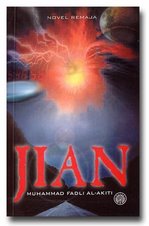Sebuah artikel yang sangat baik ditulis oleh Shahnon Shah. Saya baharu sedar kita orang Malaysia cepat menggelabah. Selepas ini wahai para pegawai kerajaan, nyanyilah "Negaraku" dengan penuh bersemangat...
For art's sake, ban the ban
Shanon Shah
If it didn't have such grave implications, I'd actually be quite amused at the stock response of some Malaysians towards anything that is deemed offensive or sensitive: "Just ban it." What a catchy adaptation of the tagline made famous by a global sporting brand. Proof of the unexpected ways in which peoples and communities are getting more globalised, I'm sure.
In this case, I am referring specifically to the indignant responses to the Negarakuku rap music video posted on YouTube by a Taiwan-based Malaysian student. There is talk of extraditing this guy and punishing him in no uncertain terms. Gabungan Pelajar Melayu Semenanjung (GPMS) went so far as to call on the government to amend laws so that action could be taken against Malaysians abroad for "committing any form of offences that could jeopardise the security and dignity of the country".
A 24-year-old Malaysian student puts out a low-budget video and posts it on YouTube, and he is jeopardising the security and dignity of our entire country? Are we seriously that fragile as a nation?
Before I continue, I think it is important to establish that we are talking about two unrelated issues: firstly, was this guy being unpatriotic, and secondly, if he was, then does this mean he should be punished or banned?
These are two different questions and it is dangerous to conflate them and assume that the answer to one automatically dictates the answer to the other.
To address the issue of to ban or not to ban, let me clarify that I've seen the video - although not the complete version because broadband connectivity being what it is in this country, I can't even get through one quarter of it before it stops - and yes, it offends me. I spoke to a friend - a non-Muslim, Malaysian Chinese - who said that he found the video disturbing and offensive to his sensibilities too.
But then I asked him, "Do you think we should take action against him?" He answered categorically, "No". He then asked me if I thought we should take any action. I, too, answered "No".
Let me provide an example to illustrate my reasoning. Throughout the glorious history of Islam, intelligent and influential Muslims have created works that offended other intelligent and influential Muslims.
Take the revered Baghdad-based Muslim mystic and thinker Al-Ghazali (d.1111 CE). So incensed was he by the philosophical works of Al-Farabi and Ibn Sina (two other revered Muslim philosophers who preceded Al-Ghazali) that he wrote an entire treatise attacking their ideas. Al-Ghazali titled his work, quite unapologetically, Tahafut al-Falasifah (The Incoherence of the Philosophers).
And yet, within less than a century in the celebrated Islamic intellectual centre of Al-Andalus (that's Spain to you modern folk), another renowned Muslim thinker, Ibn Rushd (d.1198), wrote an entire rebuttal of Al-Ghazali's refutation. Ibn Rushd cheekily titled his rebuttal Tahafut al-Tahafut (The Incoherence of the Incoherent).
These four Muslim thinkers - Ibn Sina, Al-Farabi, Al-Ghazali and Ibn Rushd - are universally respected as heroes in classical Islamic thought. All their works - including Tahafut al-Falasifah and Tahafut al-Tahafut - are considered classics in debates on the roles of philosophy, theology and spirituality in Islam.
Imagine if, instead of writing Tahafut al-Falasifah, Al-Ghazali had just called for a ban on the writings of Ibn Sina and Al-Farabi. How poor would the treasury of Islamic wisdom be now if that had happened?
I know there are some who will say, "Yes, but they were already renowned thinkers when they wrote their works. This rapper fellow is just a 24-year-old whippersnapper. What does he know?" What indeed does he know?
See, it is my belief that there is another layer to this entire scenario that we haven't begun to address yet, and it is about the nature of art and its place in society. What is art, really, and who exactly is an artist?
For example, 10 rolls of toilet paper do not an artwork maketh. But if a 15-year-old student then procures 10 rolls of toilet paper and fashions something out of them for her art project, who am I to say that it isn't art? I might find it hideous and ridiculous, but surely that's no reason to ban her 10 rolls of toilet paper. More importantly, she might be saying something important that might spur other artists to say even more important things - perhaps with sanitary pads, or locks of human hair, or even a rap song.
"But he insulted the national anthem," some will say. "You can't use art as an excuse to be unpatriotic." In my opinion, the definition of patriotism evolves all the time based on current socio-political developments and also by public debate. And I can't stress this enough.
It's really up for debate. Let everyone put their cases forward. Either through reviews, public criticisms or, you guessed it, through more art. I'm not defining patriotism here, but I am suggesting a framework for coming up with a means of making the concept of patriotism meaningful and accessible to all citizens.
But sentiment is often more powerful than reason. Sometimes certain works of art can and do provoke a violent response in the audience. Of a novel by Italian fascist leader Benito Mussolini, Dorothy Parker said, "This is not a book to be cast aside lightly. It should be hurled with great force."
In early 2006, many Muslims around the world were outraged by the publication of several cartoons in Denmark that insulted the Prophet Muhammad. Some Muslims went so far as to react very violently to express their anger.
In good old Melbourne in 1997 (while I was studying two blocks away at RMIT University), two young boys smuggled a sledgehammer into the National Gallery of Victoria and smashed Andres Serrano's "Piss Christ" artwork. Of course, I find the Danish cartoons and "Piss Christ" troubling, but I find the violent responses to them even more troubling.
Nevertheless, I must admit that I somewhat understand the motivations behind these responses. After all, I myself have felt like vandalising all promotional posters of big-budget Malaysian plays I have seen that were racist, sexist, and a complete waste of my time and money.
However, it is wise at this point to remember the words of Voltaire, "I disapprove of what you say, but I will defend to the death your right to say it." And personally, I also find it useful at times like this to go back to the noble Quran, which tells me not to ban people or arguments I disagree with, but to position my own counter-arguments "with wisdom and beautiful preaching; and reason with them in the best way possible"" (Surah An-Nahl, verse 125).
Shanon Shah is a singer-songwriter and playwright who won first prize at the 2001 ICOM New Millennium Patriotic Songwriting Competition. He believes that if you hate a piece of art, the best thing you can do is to give it to someone you don't like.





















No comments:
Post a Comment